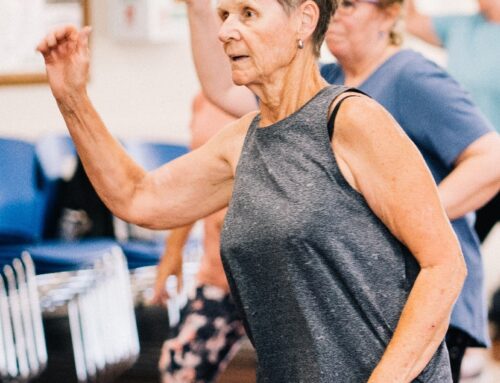 Exercise can go a long way in helping you manage your anxiety long term. In addition to benefits like heart health, regular exercise can boost your mood and ease anxiety symptoms. But how?
Exercise can go a long way in helping you manage your anxiety long term. In addition to benefits like heart health, regular exercise can boost your mood and ease anxiety symptoms. But how?
Exercise’s Effect on Anxiety
The two main ways exercise helps reduce anxiety are:
- It releases endorphins that make you feel good.
- It helps take your mind off worries.
Endorphins aren’t just a mystical buzzword. They’re brain chemicals that enhance your sense of well-being. On top of that, when you’re focusing on moving your body, it helps take your mind off the thoughts and worries that fuel your anxiety.
Other emotional benefits include:
- Gaining Confidence: When you meet exercise goals, even small ones, you get a boost of empowerment. Exercise can also help you feel better about your physical body. Although, remember, it’s important not to tie too much of your self-worth on your physical appearance.
- A Healthy Coping Mechanism: Unfortunately, there are coping habits out there that aren’t so great. Some people turn to substances to cope and it doesn’t end up being healthy. Exercise is a great coping mechanism because it promotes both body and mind health.
 Getting Started
Getting Started
One of the biggest challenges people face in using exercise as a coping method to help manage anxiety is simply getting started.
It’s easy to think that it’s a simple matter of just doing it. However, working up the motivation to exercise can feel more like a mountain than a hill. You might have the best intentions one moment and feel convinced you’ll exercise later, but when the time comes, you can’t get off the couch.
Sometimes anxiety makes it hard to hold on to motivation. We may just want to lay in bed and not move because our anxiety has us feeling not so great.
So how do you conquer the motivation issue?
Do What You Like
Start by figuring out what you enjoy. Some people associate exercise with running laps at the gym or joining a bootcamp class. And while that may be what some people like, it’s not the requirement for everyone. Perhaps you enjoy playing basketball, going on walks, dancing, or biking.
These are all great forms of exercise, too. When you enjoy what you’re doing, it feels less like a chore and you’re more likely to continue it as a habit.
It’s also important at this point to recognize barriers that might affect you. Perhaps you can’t afford fitness classes right now, don’t feel you have the right workout clothes, or feel you don’t have time.
Once you identify the reasons you are hesitant to start, you can find a solution. Working out at home is just as beneficial. You don’t need fancy workout clothes. You can take a walk on your lunch break at work.
 Set Goals, But be Ready for Setbacks
Set Goals, But be Ready for Setbacks
Setting a goal for yourself can help motivate you to make exercise a regular part of your life. Maybe you decide you want to exercise for at least half an hour, three days a week. Or perhaps you want to work up to running a 5k. When you accomplish your goal, you’ll feel great.
But be ready for setbacks. Progress with mental health and exercise, too, is not a straight line. There will be ups and downs. Obstacles are part of the journey, so don’t quit when you encounter them!
See a Therapist
Exercise alone is not a magic cure for anxiety. A therapist can help you work through your thoughts and fears, as well as help you identify other helpful coping mechanisms for your anxiety.
In therapy, you can talk about your exercise progress and any roadblocks. Having a cheerleader in your corner can help fuel your efforts. Your therapist may even be able to help you identify ways you can improve your exercise endeavors from a psychological standpoint. Click here to learn more about anxiety therapy.
If you’re ready for support in reducing your anxiety, reach out today!





